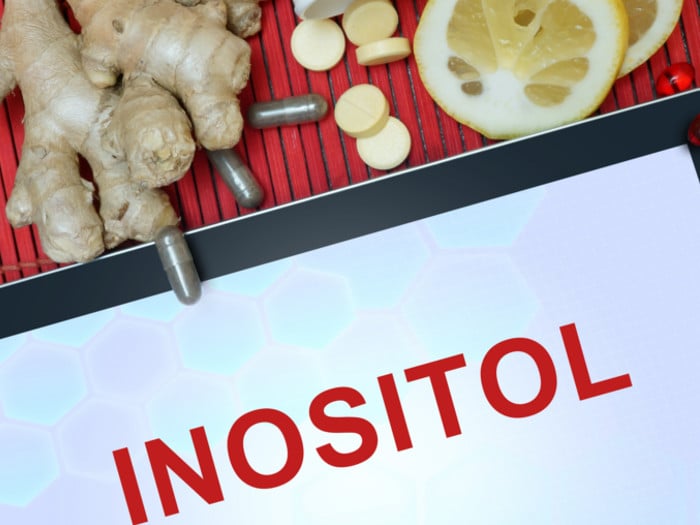Inositol: Benefits & Recommended Dosage
Inositol is a vitamin-like substance that is produced naturally in the body. Although supplementation is popular, before increasing the amount of inositol in your diet, it is best to understand what it can do.
What Is Inositol?
Inositol is a pseudo-vitamin chemical compound, which was earlier known as vitamin B8 and considered part of the B complex vitamins. However, once it was discovered that our body can make its own inositol, it was no longer considered a true vitamin. Inositol is a sugar alcohol with six hydroxyl groups, and myo-inositol is what this sugar alcohol is converted to in the brain.
Some health conditions cause the body to produce less of this compound, so supplementation is occasionally required. That being said, you can also eat certain foods to increase your levels, such as brown rice, citrus fruits, nuts, wheat germ, green leafy vegetables, cereals, soy flour, and whole grain bread. Lecithin granules and other sources of lecithin are also great sources of this vitamin-like substance.
Inositol is found in high concentrations in the brain where it works closely with various neurotransmitters and therefore, is most commonly associated with neural functions. While this is the main aspect of health linked to this chemical, there are many other impressive health benefits you can enjoy by ensuring you have enough of it in your diet.
 Inositol Benefits
Inositol Benefits
The most impressive health benefits of inositol include the following:
Treating anxiety disorders
Maintaining hormone levels
Improving fertility
Treating Alzheimer’s
Weight loss
Boosting circulation
Treating diabetes
Preventing autism
Let us discuss them in detail below.
Anxiety Disorder and Depression
By regulating the levels of hormones in the brains and working closely with neurotransmitters, this compound is able to help control your stress and anxiety levels, which can improve mood and eliminate symptoms of depression. This is one of the conditions for which supplementation is often suggested. Inositol is also used to treat panic attacks and obsessive compulsive disorder.
Circulation
This compound is known to play a key role in the flow of blood through the body. By regulating circulation, inositol can help to prevent atherosclerosis and heart problems, while also ensuring that the rest of the body gets the oxygen and resources that it needs.
Female Fertility
Some women who are struggling to get pregnant will take supplements of the compound to boost their fertility. By improving the hormonal balance in the body, it can help create the conditions necessary for life to take hold!
Polycystic Ovarian Syndrome (PCOS)
PCOS is a hormonal disorder affecting women which causes enlarged ovaries with small cysts on the outer edges. Inositol act as a second messenger for insulin and its deficiency contributes to the various features of PCOS. According to a study, a combination of inositols, in the form of myo-inositol and d-chiro-inositol, help in maintaining the endocrine and reproductive health in women with PCOS.
Autism
Although the research into this particular effect of inositol is limited, a deficiency in this compound has been linked to autism in young children. It is always important to speak with a doctor before giving powerful supplements to your child, but in some cases, this is a viable option.
Alzheimer’s Disease
As you age, and your neural capacity begins to diminish, it is important to prevent oxidative stress in the brain, and promote healthy communication of neurotransmitters. By increasing the amount of inositol in your system, you can lower your risk of developing neurodegenerative diseases like Parkinson’s and Alzheimer’s disease.
Diabetes
Some pregnant women are given supplements of this compound to lower the risk of gestational diabetes; it can also help to reduce your chances of developing Type 2 diabetes.
Weight Loss
Your body often needs catalysts to help it lose weight and change its basic composition. Inositol is an excellent way of boosting weight loss efforts and stimulating the metabolism to encourage calorie burning.
Sleep Issues
By regulating your hormones, including those that affect the duration and quality of your sleep, supplementation with this sugar alcohol can help those who suffer from insomnia, or simply people who can’t get a full night of uninterrupted sleep.
Hormone Levels
The many beneficial effects that this compound has on the body are related to its impact on hormones and communication between the brain and other parts of the body.
Recommended Dosage Of Inositol
While it is rather easy to maintain your inositol levels through a healthy diet, and through the production by your own body, some people are recommended to supplement their intake, particularly if they are suffering from neurological disease. If you are using this compound for fertility and hormone control, the recommended amount ranges from 2-4 grams. However, for neurological conditions, the dosage may increase to 12-20 grams per day. Before using this supplement, always speak with your doctor about your specific health concerns.
Inositol Side Effects
While this sugar alcohol is certainly important for our overall health, there are some potential side effects associated with it, particularly if it is taken in excess. These negative effects can include complications with pregnancy and breastfeeding, as well as nausea and certain psychological disorders.
Pregnancy: Given that inositol has a notable effect on the hormone levels of the body, it isn’t recommended for pregnant or nursing women to take this supplement.
Nausea: When you first begin taking this supplement, it can affect your digestive system in certain ways, which could lead to nausea, upset stomach or diarrhea.
Bipolar Disorder: The effects of this compound in the brain are powerful, but for those suffering from bipolar disorder, supplementation with inositol may not be a good idea, as it can worsen the symptoms.
-
References
https://link.springer.com/chapter/10...-642-68275-9_5
http://www.sciencedirect.com/science...65032700002998
https://www.ncbi.nlm.nih.gov/pubmed/7793450
https://www.ncbi.nlm.nih.gov/pubmed/9169302
http://onlinelibrary.wiley.com/doi/1....20-5-417/full
http://www.nejm.org/doi/full/10.1056...1703#t=article
https://www.ncbi.nlm.nih.gov/pmc/articles/PMC5040057/
https://link.springer.com/article/10...273191?LI=true
http://www.sciencedirect.com/science...78584696000437
http://www.nejm.org/doi/full/10.1056...0603#t=article
https://link.springer.com/article/10...282524?LI=true
https://ajp.psychiatryonline.org/doi.../ajp.152.5.792
http://www.europeanreview.org/wp/wp-.../1896-1903.pdf






 Reply With Quote
Reply With Quote
Connect With Us